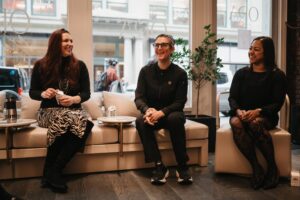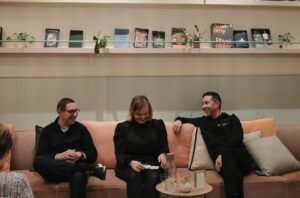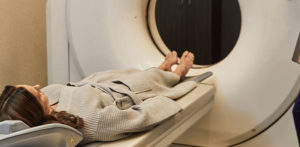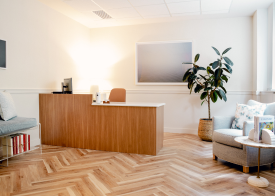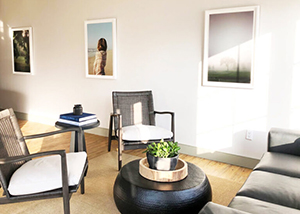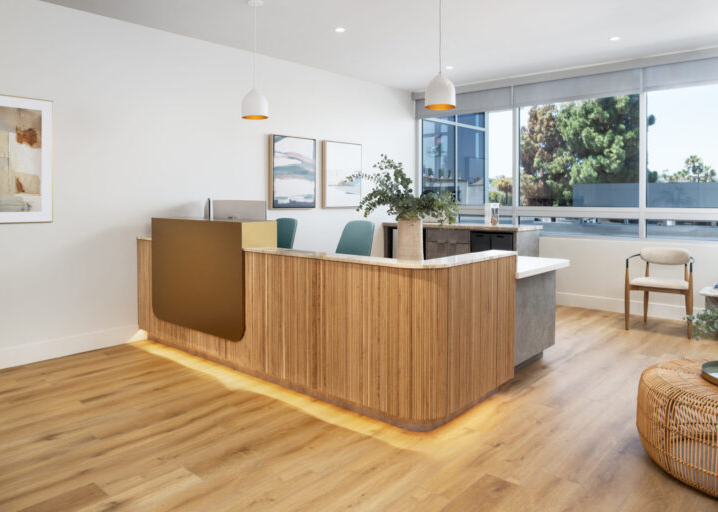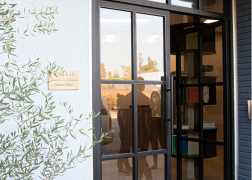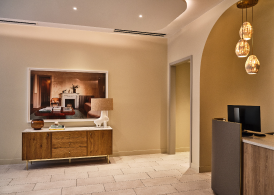How did you first realize you were suffering from anxiety?
I’m not sure I had a clear moment of revelation. It has been more of a soft burn and years of reflection in therapy and with the help of wise friends. In looking back at my life—which has been very focused on accomplishment at very high levels, always forward-focused and goal-oriented—a massive underlying energy for me is anxiety. A low-level anxiety that has never been diagnosed, but has definitely impeded my capacity to be present and satisfied in myself, and has also resulted in low-level depression that my therapist has suggested I treat. And from what I understand, the two do go hand in hand. So I’d say it is something that has been at play and evolving over time. It started to affect me in college, and then entering the world as an adult working in a competitive industry highlighted the issue. These things tend to catch up with you as you grow, it seems, and ultimately I could no longer ignore it as something outside of myself and my daily existence.What’s been the hardest part? Have there ever been times you’ve tried to get help and haven’t felt heard?
I think the hardest part is figuring out how to handle my own emotions and find a calm center, especially during difficult times. I am a deeply emotional person—and rely upon my emotions for a living—so I don’t want to shut that part of myself down. Which has in part influenced my decision to not take any medication, although I have been told there are certain medications that don’t impede that side. Without being on a medication or having a specific diagnosis, I sometimes feel invalidated in my experience of anxiety. Which is challenging at times. And I have to remind myself that this is a decision I am making as to how to cope with this.“I struggle with the unknown that comes with the entertainment industry: the not knowing when the work is coming is much harder than actually tackling the depth of characters I portray when the work does come.”
How has living with anxiety affected your work (negatively or positively!) as an actress, activist, and storyteller?
As I touched on above, it is a complex situation in which I wish to remain open to my emotional instrument while also learning how to find a balance that allows me to live my life in a healthy manner and not be debilitated on a daily basis. I do struggle with the unknown that comes with the entertainment industry: the not knowing when the work is coming is much harder than actually tackling the depth of characters I portray when the work does come. So it is the downtime that presents the greatest challenge for me. How do I handle my anxiety? How do I stop the incessant worry that I will never work again? How do I stay above the dip into depression when a long stretch goes by without seeing the light? I do my best to transmute those experiences into creative energy; but that isn’t always a linear experience and I am impatient by nature. I want to be able to transform it immediately and I have to find a way to sit in the stillness and feel the feelings and allow the energy to shift. Which is extremely hard for an overactive mind like mine.Can you describe any moments of humor or embarrassment that have happened because of it?
I think I have developed an overall sense of self-deprecating humor during the course of my journey with anxiety. My search for balance has led me to explore some rather unusual ways of coping, and along the way I have encountered some interesting folks and had very unique experiences that have brought a great deal of entertainment to my life. It is not always funny in the moment; more often in the retelling of the story later; but the lengths to which I’ve gone to handle my issue does often leave me with a sense of humor. So my search has opened me up to things I never thought I’d do or say. And I am grateful when I’m able to laugh about it later; and also grateful that more often than not my absurd experience has been healing.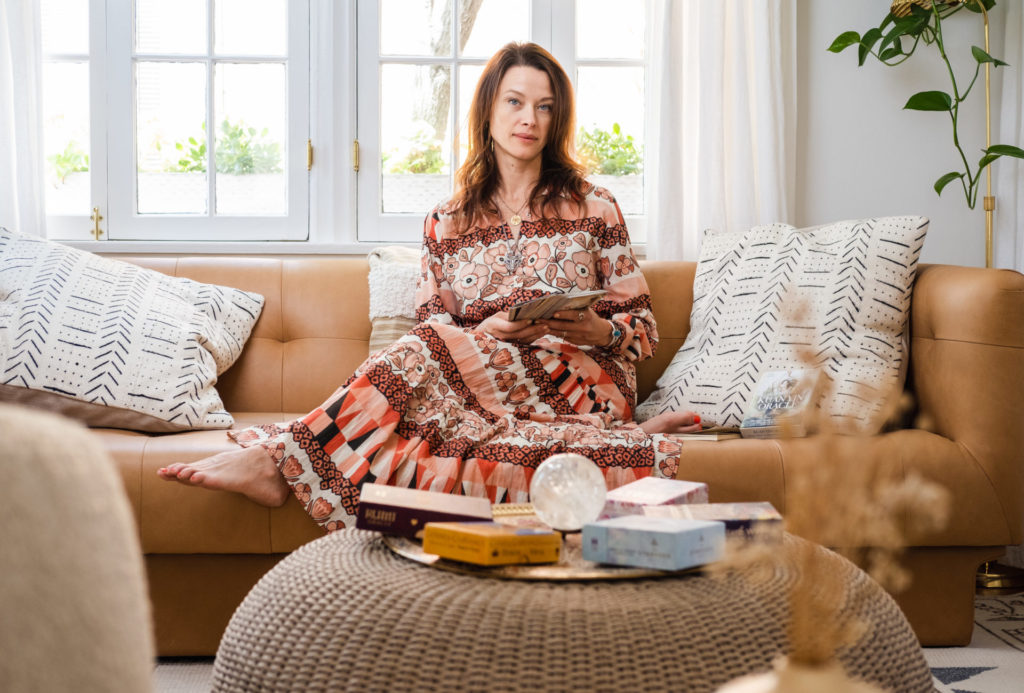
What sort of treatments have you tried—from the most basic to the most experimental—and what’s been the most helpful?
I have tried the gamut of treatments, outside of actual prescribed drugs. I have been in therapy for years. I find EMDR quite effective. Talk therapy is helpful but can sometimes put me in my head and simply lead me to being harder on myself. That compassion piece is a huge part of the equation for me. As I gain awareness, it’s hard for me not to beat myself up for not embodying the lesson right away. And speaking of embodying: dance. As a dancer, I find it super helpful to dance it out. Ecstatic dance and 5 Rhythms are amazing resources. I also have done a great deal of Jungian Shadow work and EFT (Emotional Freedom Technique), which involves tapping on meridians in the body to open up and shift neural pathways. I have also found plant medicine to be incredibly helpful; the key to that is to follow up with integration through things such as therapy and work with professionals with whom you can be accountable to the healing downloads received through plant medicine work.You’re very connected with things like nature, gratitude, and your spiritual side. Has that helped you deal with your anxiety?
Amen to this. Nature is honestly probably the greatest balm. To disconnect and tune in to the natural rhythms of the earth is the greatest anxiety reducer for me. We live in such a fast paced, goal-oriented world with a million distractions at our fingertips that more often than not leave us feeling “less than” and depleted. And there is no greater gift for my hyperactive critical anxious mind than stepping away from it all. Turning off my phone and tuning into my heart. And while I don’t have the luxury of living my life that way daily—and nor do I want that, at this point in my life—I do my best to bring aspects of that practice into my daily routine in the form of meditation. I usually meditate every morning and journal to try to get what’s in my head out and find some reprieve and presence of mind as a result. I used to start my day jumping out of bed and going to the gym right away; now I take time to meditate and sit with myself, and my next hope is to integrate an evening practice of meditation more regularly.“At the end of the day, my anxiety is based in fear and wanting to control my life, and I have to come to terms with the fact that fear is human and we don’t have control. So, how can I live with that truth today?”
What have you learned about yourself as you cope with your mental health day in and day out?
I have learned that this is a part of who I am, and it’s a daily practice to work to find balance. I have learned that perfection and the aspiration for that is not healthy; that it is good to work hard and dream big, but self compassion and forgiveness are key to mental health. I have learned that even low-level anxiety can be debilitating and is important to pay attention to. I am not a machine that can just do do do. I must take time to attend to my mental health and my emotional needs. And also not let those things overwhelm me at the same time by reaching out for help and not judging myself for having these very human issues. At the end of the day, my anxiety is based in fear and wanting to control my life, and I have to come to terms with the fact that fear is human and we don’t have control. So, how can I live with that truth today? In other words, I have learned that I continue to learn, every day.If there’s been a silver lining, what would you say it is?
The healing journey I have been on that has opened my mind and heart to a much broader understanding of humanity and the human experience. I have met people I never thought I’d meet; I have tried things I never thought I would try; I have been places I never thought I would go. And I have found a deeper connection to my soul in this process. So while a part of me sometimes wishes my 20-year-old self’s life plan had panned out perfectly as imagined, I have gained so much wisdom through the stumbling and moving through anxiety and how to cope with it that at the end of the day, I wouldn’t change it.What do you think is the biggest misconception about anxiety, and what do you wish you could help people understand better?
I think there is an idea that something like anxiety is a big debilitating thing that completely shuts people down to functioning. And then there is, at the same time, an accepted approach that it’s just a small thing that people need to just “breathe through” (incidentally breathwork is another tool I use); and that it doesn’t need to be addressed. A “just deal with it” attitude. And I don’t think that is helpful on an individual or collective level at all. I think as a society we need to have more conversations around mental health and how to cope with our own struggles within the context of a very busy, challenging and often exhausting world. We need to be open about resources and ways to cope that don’t start and end with just a pill. Even though that pill can be helpful; the issue runs deep and requires focused attention and energy over time to ultimately find a lasting solution.“Being a member of Sollis has been invaluable in so many ways, but what I appreciate more than anything is having reliable 24/7 medical care at my fingertips. In addition to my everyday medical care in LA, I have used Sollis a lot for my travel—especially when I’m in remote parts of the world like Ghana. Knowing I have a number to call for anything from a medevac to the location of the nearest hospital has given me incredible peace of mind.”
How has Sollis been able to help ease your anxiety?
Being a member of Sollis has been invaluable in so many ways, but what I appreciate more than anything is having reliable 24/7 medical care at my fingertips. In addition to my everyday medical care in LA, I have used Sollis a lot for my travel—especially when I’m in remote parts of the world like Ghana. Knowing I have a number to call for anything from a medevac to the location of the nearest hospital has given me incredible peace of mind.
Any good words to live by?
Who knows? Ha. I mean that in the deeper sense. So… do your best to be with what is, and accept that being human is an imperfect thing. And the future is ultimately out of our control. What we can control are our reactions and coping mechanisms, so it’s best to focus on that instead of what lies ahead in an unknown space and time somewhere down the line. Now if I could just take my own advice…!
